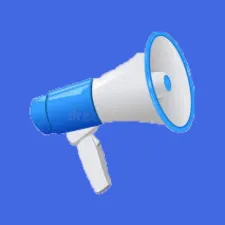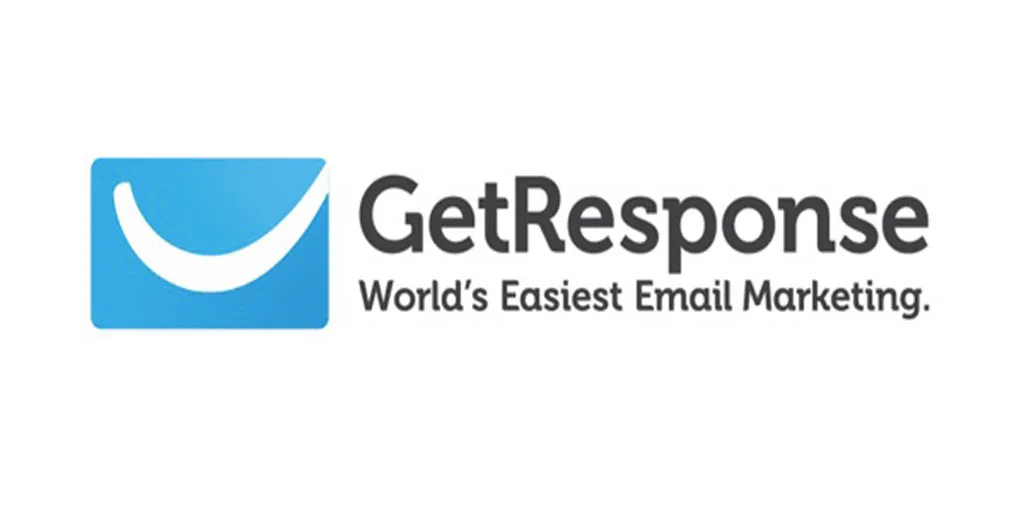What is an RSS Feed? Why It Matters More Than Ever in 2025
What is an RSS Feed? In 2025, this is not just a technical question—it’s essential for anyone who wants real control over their online experience. As social media platforms tighten their grip and filter more of what we see, RSS feeds have become the backbone of a healthier, more independent web. In this article, we’ll explore why RSS feeds still matter in the modern era, debunk common myths, show how they empower both readers and creators, and examine their future in a world dominated by social media. Along the way, you’ll learn everything you need to answer once and for all: What is an RSS Feed?
Why RSS Feeds Still Matter in 2025
To begin with, let’s clarify: What is an RSS Feed? At its core, an RSS feed (Really Simple Syndication) is a tool that allows users and publishers to share and receive updates from websites, blogs, podcasts, and more—directly and instantly.
For years, people have relied on social media for news and updates. However, as we move into 2025, many realize these platforms are not as neutral as they seem. Increasingly, algorithms decide what you see, when you see it, and even if you see it at all. As a result, important content can easily be buried or filtered out.
That’s where RSS feeds come in. Unlike social media, RSS feeds deliver every single update from your chosen sources, in real time and in chronological order. You don’t miss out on important news simply because an algorithm decided it wasn’t “relevant” enough.
Furthermore, RSS feeds work across platforms and devices. Whether you’re using a desktop app, a mobile phone, or a smart device, your RSS reader brings all your updates together in one convenient place. This universal compatibility is more valuable than ever, especially in a digital landscape where fragmentation is increasing.
Additionally, RSS feeds are private by design. Unlike social networks, they don’t track your activity, build advertising profiles, or sell your data. You subscribe anonymously, and your reading habits remain your own. In a world where privacy concerns continue to grow, this is a significant advantage.
Given all these benefits, it’s clear that understanding What is an RSS Feed is more relevant now than ever. RSS feeds keep you in charge of your digital life.
Common Misconceptions About RSS Feeds
Despite their usefulness, there are many misconceptions about RSS feeds. Some believe RSS is an outdated technology, while others think it’s too technical or complicated for everyday users. Let’s address these misunderstandings one by one.
First and foremost, RSS is far from obsolete. Major news outlets, popular blogs, and even YouTube channels continue to offer RSS feeds. In fact, as more people seek ways to escape algorithm-driven feeds, RSS is making a comeback. Its simplicity is its strength.
Secondly, many assume RSS is only for tech enthusiasts. In reality, modern RSS readers are extremely user-friendly. For example, subscribing to a feed is often as easy as clicking an icon or copying a link into your preferred app. There’s no need for advanced technical skills.
Moreover, another common belief is that RSS feeds only provide headlines or summaries. This is simply not true. Most RSS feeds offer full articles, images, podcasts, and even videos. You can use RSS to follow newsletters, forums, and almost any content published online.
Additionally, some people worry that using RSS means missing out on the social aspect of the web. However, many RSS readers now include sharing features, so you can easily send interesting articles to friends or post them on your favorite platforms.
To sum up, What is an RSS Feed? It’s a flexible, accessible, and surprisingly modern way to consume content—no matter your technical background.
How RSS Feeds Empower Content Creators and Readers
Understanding What is an RSS Feed is especially important for both content creators and readers. Let’s look at how both groups benefit.
For Content Creators
When you publish online, you want your audience to see your content, not just when the algorithm allows it. By providing an RSS feed on your site, you create a direct connection to your readers. Every subscriber receives every update, without interference.
Additionally, RSS feeds enable content creators to reach niche audiences who may not use traditional social platforms. For example, many podcast listeners rely on RSS to receive new episodes automatically. Similarly, bloggers and journalists can build dedicated followings who value direct, unfiltered access to their work.
RSS also supports content distribution beyond your own website. Aggregator platforms and apps can showcase your posts, helping you reach new readers and grow your audience organically.
For Readers
On the other hand, readers gain more control over their information diet. With RSS, you decide exactly which sources to follow, how often you want to receive updates, and how your feeds are organized. There’s no risk of missing a post because it wasn’t “boosted” by an algorithm.
Moreover, RSS feeds save time. Instead of visiting multiple sites or scrolling endlessly through social media, all your favorite content arrives in one place. You can read at your own pace, without distractions or ads.
Privacy is another powerful advantage. Since RSS feeds don’t track your behavior, you can explore new topics freely. This helps create a healthier and more open web for everyone.
Finally, RSS feeds support accessibility. Many readers offer features like text-to-speech, offline reading, and customizable layouts, making it easier for all users to stay informed.
The Future of RSS in a Social Media-Dominated World
You might wonder: Will RSS survive in a world where social media is everywhere? The answer is a resounding yes. In fact, as concerns about privacy, data ownership, and algorithmic control increase, RSS feeds are becoming more important than ever.
Developers are creating innovative RSS readers that blend traditional features with modern design. For instance, you can now integrate newsletters, podcasts, and even YouTube channels directly into your RSS app. Some readers allow you to filter and tag content, making it easy to organize your feeds and find exactly what you need.
Furthermore, RSS remains resilient against censorship and platform closures. If a social network changes its rules or disappears, your RSS feeds continue to deliver content without interruption. This open standard ensures that the internet remains a space for free expression and independent thought.
Additionally, the rise of open-source and privacy-focused technologies is fueling new interest in RSS. Communities are forming around the idea of a decentralized web, where users—not corporations—control their information flow.
In short, understanding What is an RSS Feed is about more than just technology. It’s about reclaiming your right to choose how, when, and from whom you receive information.
FAQs About RSS Feeds
What is an RSS Feed?
An RSS feed is a standardized web file that allows users to receive updates from their favorite websites, blogs, or podcasts automatically. Instead of visiting each site, your RSS reader collects all new content in one place.
What is an RSS News Feed?
An RSS news feed delivers news updates from media outlets or blogs directly to your RSS reader. This way, you always get the latest headlines and articles, no matter where you are.
What is meant by RSS feed?
When people ask, “what is meant by RSS feed,” they’re talking about a file that lists new content published by a website. Subscribing to the feed means you get every update, instantly.
What does RSS feed stand for?
RSS stands for Really Simple Syndication. It’s a protocol designed to make it easy to share and receive content from across the web.
What does RSS feed mean?
In simple terms, an RSS feed means a stream of content updates pushed from a website to your chosen reader or aggregator.
What does an RSS feed do?
An RSS feed sends you new posts, articles, or episodes from a website directly to your RSS reader, so you never miss an update.
What is a RSS aggregator?
A RSS aggregator is a tool or app that collects content from multiple RSS feeds and displays them in one place. Examples include Feedly and Inoreader.
What are RSS feeds used for?
RSS feeds are used to follow blogs, get news, listen to podcasts, and stay updated on a variety of interests—all on your own terms.
How to Get Started with RSS Feeds
If you’re new to RSS, getting started is easier than you think. First, choose an RSS reader. Many free and paid options exist for desktop, mobile, and the web. Once you’ve picked a reader, visit your favorite websites and look for the RSS icon or link. Copy the feed URL and paste it into your reader. That’s it! From now on, you’ll receive every update automatically.
You can subscribe to as many feeds as you like. Over time, you’ll build a custom news and content experience that’s tailored to your interests. Don’t be afraid to experiment with different readers and features until you find the setup that works best for you.
Tips for Advanced RSS Users
If you already know What is an RSS Feed and want to make the most of it, here are some pro tips:
- Use keyword filters to highlight the topics you care about most.
- Organize feeds into folders or categories for easier navigation.
- Take advantage of offline reading features for commutes or travel.
- Connect your RSS reader with productivity tools like Pocket, Evernote, or Instapaper.
- Try open-source RSS readers for maximum privacy and customization.
The Role of RSS in Modern Content Marketing
For businesses and brands, RSS feeds are still a valuable tool. By maintaining an active RSS feed, you ensure that your content reaches your audience directly—even if social networks change their rules or algorithms. RSS can drive traffic, build loyalty, and foster a community of engaged readers who trust your brand.
Moreover, RSS feeds make it easier to distribute content across different platforms and devices. Automation tools can use your RSS feed to share updates on social media, send email newsletters, or syndicate content to partner sites. This multiplies your reach without extra work.
In addition, RSS analytics can reveal what topics resonate with your audience, helping you refine your content strategy and better serve your readers.
Conclusion: RSS Feeds—The Backbone of a Healthier Web
So, What is an RSS Feed? It’s so much more than just a technical tool. It’s a way to reclaim control over your digital life, protect your privacy, and stay informed without interference. In 2025, as the web becomes more complex and controlled, RSS feeds stand out as a beacon of openness and independence.
If you value freedom, transparency, and choice, now is the perfect time to rediscover the power of RSS. Start using RSS feeds today and experience a more personalized, clutter-free, and empowering internet.
Take charge of your digital world. Explore RSS feeds, and see how much better your online life can be!




